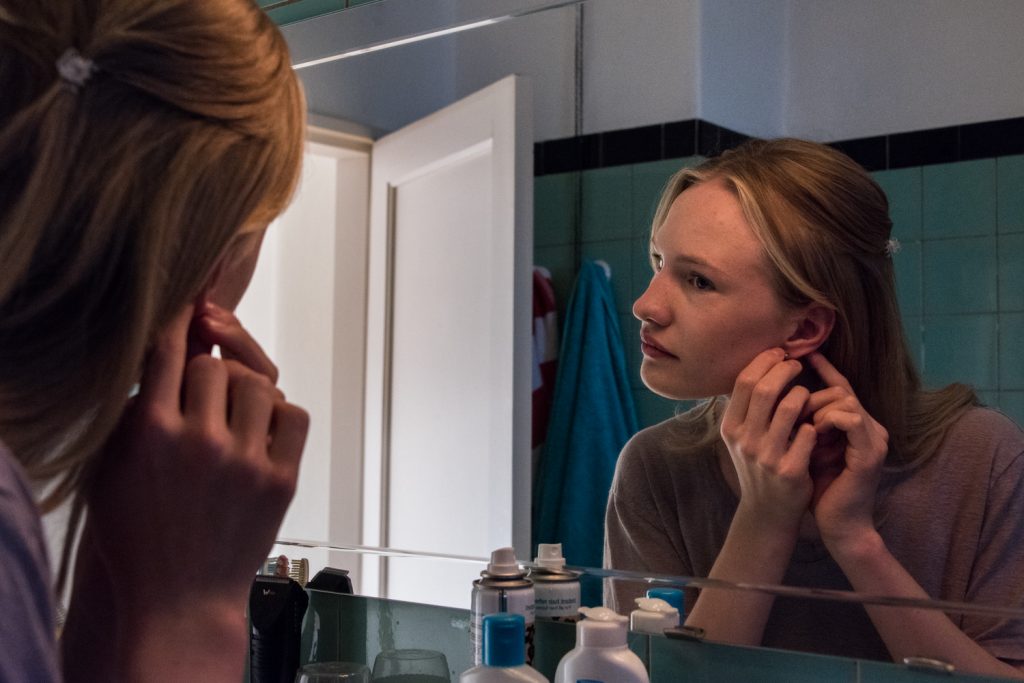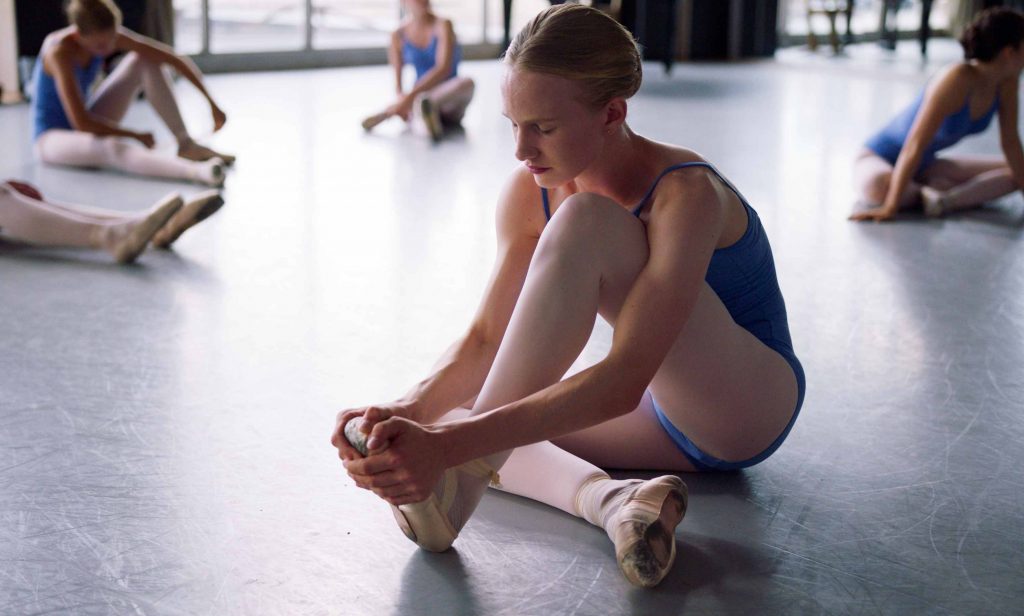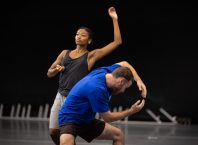
Girl – the word itself is controversial for so many of us. We, as a human culture, are currently engaging in exploration, opening to question so many paradigms of thought that were once considered immutable. It is a heavily charged conversation, for what is at stake is – everything. Our beliefs about ourselves and the world, our relationships to others, our rights and freedoms, our sense of identity. It is no wonder then that Lukas Dhont’s moving, beautifully wrought debut feature Girl, has not only generated considerable controversy and conversation, but has even come under attack. The critique centers on several issues: as a trans story told by a cis director, casting, and the film’s ending.
In Girl, Dhont focuses on that most elusive subject, an adolescent girl, as she struggles with issues of identity, body image, relationships, and the pursuit of dreams. Lara wants to be a ballerina, but although she is talented, the path is difficult and the outcome uncertain. Born in the body of a boy, her training up until now has not been the same as that of cisgender girls, so she has a lot of catching up to do, and then there’s the issue of going through her transition (which will involve both hormonal treatments and surgery) while struggling to thrive in the grueling and competitive environment of a prestigious dance school. A sensitive, intelligent, and riveting film, Girl is illuminated by Victor Polster’s portrayal of Lara, in all her desires, inhibitions, courage, impulsiveness, reticence, warmth, and determination.

Yet it is impossible to discuss the film without engaging in the ongoing conversation on casting. My own perspective is that there should be an active, ongoing effort to change attitudes, end discrimination, and cast transgender actors (as one would any cisgender actor) in male, female and transgender roles. A history of discrimination in casting should not be ignored, and I feel that anyone considering casting a cisgender actor as a transgender character in a film ought to think carefully, have strong reasons for this choice, and as they say on exams – be prepared to support your decision with evidence. While I recognize the difficulty in seeing yet another film in which a trans role is portrayed by a cisgender actor, I firmly believe that the ultimate deciding factor ought to be an actor’s suitability to the role and its requirements. Dhont has stated that he auditioned several hundred teens for the role of Lara, including cisgender males, cisgender females, and trans actors. Yet the attributes necessary for the role of Lara were very specific: it must be someone who can act, dance classical ballet, and has a penis. Polster, a professional dancer, had the qualifications.
For some, a film with a transgender protagonist is very far beyond their comfort zone. Yet those who are not scared off, and come to see the film, may find their understanding of the issue enhanced by Dhont’s film. Lara has, in many respects, the best-case scenario for a transgender teen. She has a loving, supportive family, she’s been accepted to the dancing school that will not only help her achieve her goals but is, albeit sometimes blunderingly, warmly supportive; and she has a caring, understanding doctor and therapist. The relative calm of her surroundings allows the focus to be on Lara, her thoughts, her feelings; emphasizing how painful and difficult it is to feel estranged from one’s own body.
Victor Polster is radiant, conveying Lara’s inner world with a delicately nuanced performance. One of the film’s many poignant moments is when Lara brings her younger brother Milo to school and the teacher asks: “Are you his sister?” Her happiness at this simple question, this symbol of acceptance, shines in her eyes.
Watching Lara in her daily life at home, in school, in ballet class, I did not see a boy transitioning into a girl, I saw a girl with a penis. Which brings me to another difficult aspect of this film: underage nudity. I have many concerns about the film industry’s exploitation of young people, who have not yet achieved the maturity I deem necessary to make decisions about what they are comfortable with doing on film, and the long-range implications of their decisions. Yet at the same time, body image is such a central issue to this film, that I cannot deny the compelling impact of Lara’s gaze as she looks at her body. Quandary.
There has also been criticism of the film’s emphasis on the physical aspects of Lara’s struggle, yet my own perspective on this issue is that Girl is not every trans story, it is one trans story. Any dancer’s relationship with her body is significant and relevant to her sense of identity, as such, the preoccupation with physicality feels right in the context of the film. And I’ll say it again: Girl is not every trans story, nor should it be. I look forward to a future in which there will be many more films that relate to the transgender experience.
Can a cis person tell a transgender story? Yes, but… Yes, because without freedom there is no art. If we are only limited to telling those stories that we have experienced personally, or are constrained to writing according to a particular set of rules or formula, that is the death knell of imagination and art. As artists, we create in absolute freedom. But, as members of human society, it is our responsibility to be open, aware, and actively engage in the issues of our time. In this context, it is significant to note that Girl was inspired by the life experiences of transgender woman and dancer, Nora Monsecour, with whom Dhont consulted in his artistic process.
It’s an excellent film, that follows its themes with insight and respect, capturing the intensity, beauty, effort, pain, and drama of dance school, as well as the internal struggles of a transgender teen. I did not like the film’s final moments, however, to avoid spoilers I will not elaborate on it here. Talk to me after you see Girl.
Girl
Belgium/Netherlands, 2018, 1 hour 49 min, French, Flemish, English dialogue, English & Hebrew subtitles
Director: Lukas Dhont; Screenplay: Dhont, Angelo Tijssens; Cinematography: Frank van den Eeden; Editor: Alain Dessauvage; Music: Valentin Hadjadj; Cast: Victor Polster, Arieh Worthalter, Oliver Bodart, Tijmen Govaerts, Katelijne Damen, Valentijn Dhaenens.





